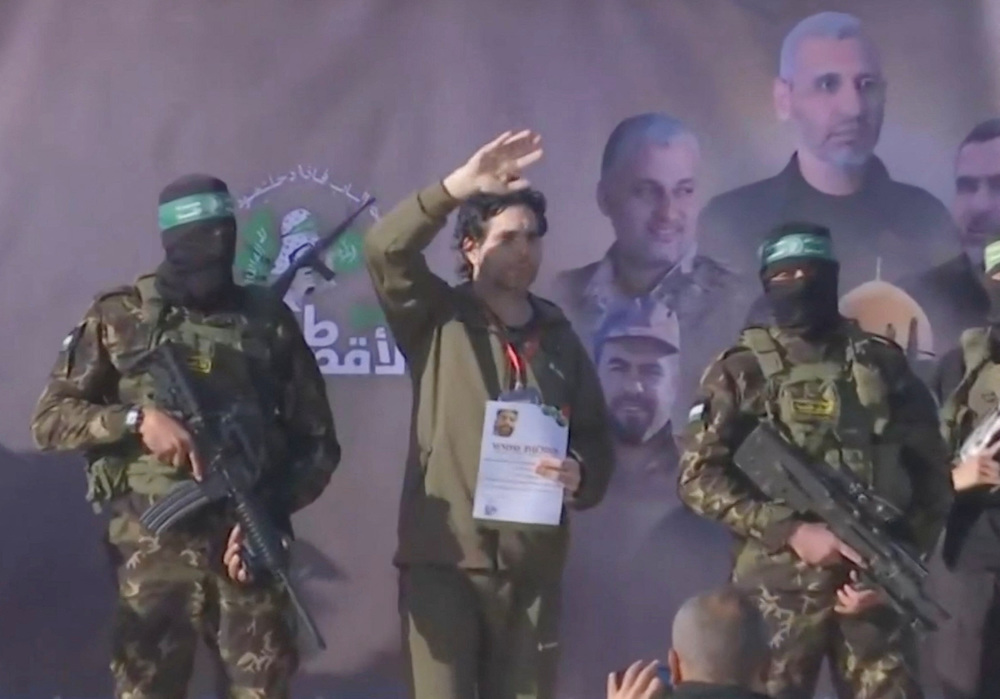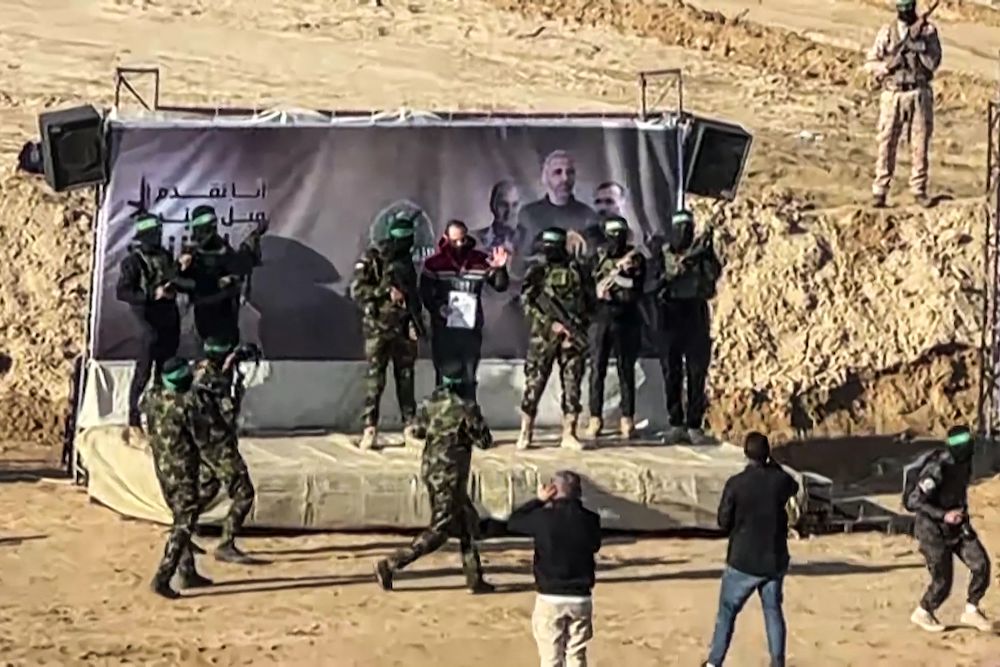BEIRUT: Several independent MPs, reformists, and opposition parties urged Lebanon’s caretaker government on Monday to declare a state of emergency in southern Lebanon and hand over control to the military.
They asked parliament to adopt a “roadmap to de-escalate and spare Lebanon a war that the Lebanese do not want, and the official legitimate Lebanese institutions have not decided to wage.”
Ashraf Rifi MP called for immediate action to stop all “unauthorized military activities and its apparatuses” in southern Lebanon.
At a press conference held by the MPs, Rifi, speaking on the group’s behalf, also said the Lebanese Armed Forces should be deployed to confront any threats.
The MPs urged the government to step up diplomatic moves to return to the armistice agreement signed in 1949 and to implement UN Resolution 1701 in full.
Their appeal comes amid fears of military escalation in the region by Israel against Hezbollah.
Rifi said the ongoing war has cost “us the lives of hundreds of Lebanese, thousands of destroyed residential units, in addition to the economic and environmental damages caused by daily Israeli attacks.”
He said that he and his fellow MPs “strongly oppose Lebanon’s participation in a war it has no connection to, and they (represent) the majority of Lebanese.”
Rifi emphasized “the need to separate the Lebanese and Palestinian tracks regarding what is happening in Gaza.”
He added: “We strongly condemn Israel’s actions at all levels, including systematic killing, displacing people, and colonization.
“We want to protect our country and prevent it from being dragged into a broader war that has no goal other than strengthening Iran’s position in the regional equation, does not benefit the Palestinian cause, and destroys Lebanon.
“We will not accept that armed groups, whether local or foreign, operating on Lebanese territory, impose the logic of the unity of the arenas, which is rejected by the majority of the Lebanese, as it brings hostility to Lebanon from the Arab and international communities, the latest of which is Cyprus and the EU.”
He also stressed “the importance of implementing UN Resolution 1701 in all its aspects by all parties, supporting the Lebanese Army and security institutions to control the international borders in the south, east, and north, and implementing international resolutions 1559, 1680, and other international treaties and related Taif Agreement provisions.”
Rifi urged opposition MPs to “convene a parliamentary debate on the ongoing war in the south and its potential escalation and to endorse the points of the initiative they put forward.”
The appeal came as UNIFIL and various other organizations met in Shama to discuss security and support for communities affected by fighting in southern Lebanon.
UNIFIL said the needs of displaced people “are great and require a comprehensive approach.”
It added said the meeting was strongly supported by UNIFIL Sector West Commander Brig. Gen. Enrico Fontana, who stressed the importance of “complementarities between humanitarian organizations and UNIFIL in efforts to support both the displaced and the remaining communities in southern Lebanon.”
Fontana spoke about improving essential services such as waste management, water, electricity, and education.
He said there was a noticeable upward trend in demand for firefighting equipment, humanitarian aid, medical services and medicines.
The meeting included five UN agencies, the representative of the Humanitarian Forum of Lebanese International Non-Governmental Organizations and 11 international NGOs including Mouvement Social, Oxfam, the Norwegian Refugee Council, Save the Children and American East Refugee Aid.
Three national non-governmental organizations — Imam Sadr Foundation, NUSANED, Najee, and the International Committee of the Red Cross — also participated.
In another development, a top Arab League official confirmed that the bloc “no longer classifies Hezbollah as a terrorist organization.”
Hossam Zaki, the league’s assistant secretary-general, made the announcement in a televised statement broadcast by Al-Qahira news channel on Saturday evening.
Zaki, who visited Lebanese officials last week, said that “previous decisions of the Arab League labeled Hezbollah as a terrorist organization, resulting in a communication breakdown. However, the agreement of member states not to use this language allowed for communication with the party.”
The Arab League “does not have official terrorist lists, and its efforts do not involve categorizing entities as terrorist organizations,” said Zaki.
In March 2016, the Arab League labeled Hezbollah as a terrorist organization and “urged them to stop promoting extremism and sectarianism, meddling in other countries’ internal affairs, and backing terrorism in the region.”
The decision was met with reservations from the governments in Lebanon and Iraq.
Zaki’s visit to Lebanon last week, which aimed to contain the escalation in the south, included a meeting with the head of Hezbollah’s parliamentary bloc, Mohammed Raad.
Also on Monday, Israeli aircraft violated Lebanese airspace over Beirut and its suburbs as well as Mount Lebanon.
Three Hezbollah members were also killed an Israeli strike that targeted a house in the border town of Houla.






























